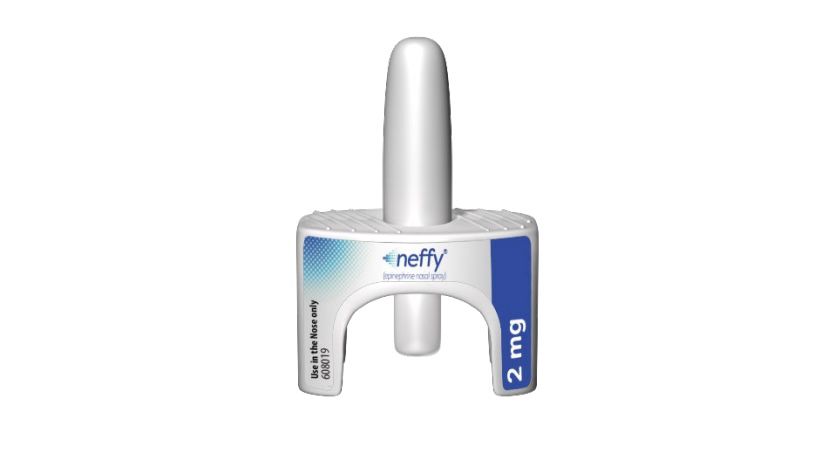The EpiPen has long been the go-to for individuals suffering severe allergic reactions, but they will soon have another option.
The U.S. Food and Drug Administration approved a first-of-its-kind epinephrine nasal spray Friday for emergency treatment of life-threatening anaphylaxis.
“Some people, particularly children, may delay or avoid treatment due to fear of injections,” FDA Center for Drug Evaluation and Research Associate Director Kelly Stone said in a statement.
The new nasal spray, known as neffy, “may reduce barriers to rapid treatment of anaphylaxis” and “provides an important treatment option” for an unmet need, she said.
Certain foods, medications and bug bites are allergens that can cause life-threatening reactions. Symptoms most commonly happen within minutes of a person’s exposure and can include hives, swelling, itching, vomiting, difficulty breathing and loss of consciousness, according to the FDA.
The only life-saving treatment for such a reaction is epinephrine, which has only been available as an injection until now.
At least 25 million people in the United States have experienced severe allergic reactions that could lead to anaphylaxis. In 2021, about 3.3 million had filled a prescription for an epinephrine injectable device, but only half carried them, according to ARS Pharma, which makes neffy.
“FDA approval of neffy means that patients with severe allergies finally gain a long-awaited, needle-free, easy-to-carry epinephrine delivery method that has the potential to reduce time to administration, which can lead to better clinical outcomes and improvements in quality of life for patients and their caregivers,” University of South Florida Professor of Medicine Thomas B. Casale, M.D., said in a statement.
So-called Type 1 allergic reactions lead to about 500,000 emergency room visits annually, according to neffy. Of those, more than half of the patients said they hadn’t received epinephrine before going to the ER.
The FDA based its approval of neffy on four studies involving 175 healthy adults that did not have anaphylaxis. They showed that individuals who received epinephrine with an injection or nasal spray had comparable blood concentrations of the medication and similar increases in blood pressure and heart rate.
The results were similar in children weighing at least 66 pounds and in adults.
Neffy is administered into a single nostril with just one dose. The most common side effects include throat irritation, tingling nose, headache, nasal discomfort, jittery feelings, tingling sensations, fatigue, tremor and runny nose, among others.



